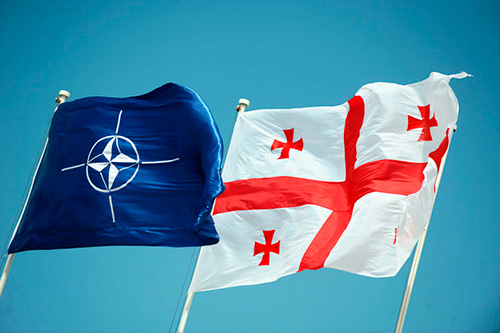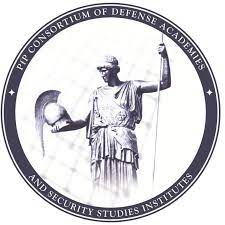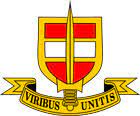
Elections in Turkey Next Year May Bring the Erdogan Era to an End  By Benyamin POGHOSYAN, PhD, Chairman, Center for Political and Economic Strategic Studies By Benyamin POGHOSYAN, PhD, Chairman, Center for Political and Economic Strategic Studies
2023 will be a crucial elections year in Turkey, and there is no certainty that president Erdogan and his AK Party can maintain their hold on power. The stakes are high and political turmoil will have implications way beyond Turkey itself.
The latest Russia-US and Russia-NATO tensions have entirely shifted the attention of the media and the expert community to Ukraine. Tens, if not hundreds, of papers and policy briefs are published daily, seeking to understand what Russia wants in Ukraine and whether Russia and the West will come to a diplomatic solution and avoid war. As a NATO member and Black Sea littoral state Turkey has a significant role in these calculations. What will be Turkey's reaction if war breaks out in or around Ukraine, and how will the war impact Russia - Turkey relations in other regions – the Middle East, South Caucasus, Balkans, and North Africa? READ MORE
- EGF Editor |
Published on EGF: 25.01.2022
| External Relations
-
Have the Events in Kazakhstan Exposed the Limits of Turkey’s Regional Aspirations in Central Asia?  By Yeghia TASHJIAN, Beirut-based regional analyst and researcher, columnist, "The Armenian Weekly” By Yeghia TASHJIAN, Beirut-based regional analyst and researcher, columnist, "The Armenian Weekly”
In February 2021, I wrote an article “Turkey’s Pivot in Central Asia: A Calculated Risk?” and asked to what extent can Turkey push its pan-Turkic aspirations in Central Asia? If Turkey’s economic and energy relations in Central Asia continue to deepen, will it inevitably increase engagement on security issues as a means to protect them? Will Russia and China tolerate a NATO member exerting its influence near their traditional zones of influence? The developments in Kazakhstan clearly provided answers to these questions.
Long seen as the pole of stability in Central Asia, Kazakhstan has faced its most serious political crisis to date. What began as a reaction to a spike in fuel prices in the western oil-producing regions spread across the country with unprecedented calls for reform, before escalating into violence in the country’s biggest city, Almaty. The protest movement in Kazakhstan quickly escalated and turned violent as protesters seized and set alight government buildings. After failing to quell the unrest, President Kassym- Jomart Tokayev launched a “counter-terror” operation to regain control of the situation and appealed to the Russian-led Collective Security Treaty Organization (CSTO) for military assistance. READ MORE
- EGF Editor |
Published on EGF: 25.01.2022
| External Relations
-
War and Peace in the South Caucasus: Putin Style  By Alan Whitehorn, Professor Emeritus in Political Science, The Royal Military College of Canada By Alan Whitehorn, Professor Emeritus in Political Science, The Royal Military College of Canada
Without a doubt, Russia’s leader Vladimir Putin is the greatest factor in the risk of war between Russia and Ukraine. Yet paradoxically, Putin is perhaps the best hope for peace in the South Caucasus, at least as far as Azerbaijan and Armenia are concerned. The Georgian situation is, however, another matter. But one should take one step at a time in this exceptionally dangerous and conflict-prone region.
The recent 2020 Karabakh War between Azerbaijan and Armenia was, in effect, a continuation of the bitter 1990s ethno-religious territorial war over Nagorno-Karabakh (Artsakh) that emerged between the two newly independent states in the midst of the break-up of the Soviet Union. The 1990s conflict produced thousands of casualties and hundreds of thousands of displaced civilian ethnic minority refugees. It was a humanitarian catastrophe for families on both sides of the border. READ MORE
- EGF Editor |
Published on EGF: 16.01.2022
| Security
-
The Implosion of Kazakhstan was Unexpected  By Benyamin Poghosyan, PhD, Chairman, Center for Political and Economic Strategic Studies By Benyamin Poghosyan, PhD, Chairman, Center for Political and Economic Strategic Studies
We need time to understand better what happened in Kazakhstan, and why". Whilst sending CSTO troops to Kazakhstan was clearly President Putin's decision to support President Tokayev in the internal fight between Kazakh local elites, the deployment has implications also for other countries participating in the mission, including Armenia.
The beginning of 2022 surprised many. While experts and pundits were busy discussing the possible outcome of the Russia – US and Russia - NATO negotiations, scheduled for early January, and seeking to predict if large-scale hostilities would break out in Ukraine, Kazakhstan imploded. This vast country with less than 20 million population, with huge reserves of oil, uranium, and other minerals and a significant geographical location connecting China with Russia and Europe, seemed to be an island of stability in the vast landmass of Eurasia. President Nursultan Nazarbayev had ruled the country since its independence, and while he stepped down in 2019, he maintained his influence and control from the position of Chairman of the Security Council. The second President of Kazakhstan, Kassym - Jomart Tokayev, a professional diplomat who started his career in the Soviet Union, seemed to be an excellent choice for Nazarbayev, enabling him to organize a smooth power transition, keep the stability of the country, and his primordial leading position. READ MORE
- EGF Editor |
Published on EGF: 16.01.2022
| External Relations
-
Will Turkey Gamble with Ukraine against Russia?  By Yeghia TASHJIAN, Beirut-based regional analyst and researcher, columnist, "The Armenian Weekly” By Yeghia TASHJIAN, Beirut-based regional analyst and researcher, columnist, "The Armenian Weekly”
In the past few years, Turkey has been gradually increasing its influence in Ukraine through trade and military cooperation amid escalating tensions between Moscow and Kyiv, challenging Moscow’s standing in the Black Sea region. The strategic cooperation between Ankara and Kyiv is not limited to political statements, but rather encompasses other important fields, such as the economy, security and defence industries. Moreover, relations between the two countries gained further impetus with Russia’s unification of Crimea in 2014 and reached their peak during the administration of Ukrainian President Volodymyr Zelensky, who assumed office in 2019. READ MORE
- EGF Editor |
Published on EGF: 18.12.2021
| Security
-
What next in Armenia – Azerbaijan relations  By Benyamin Poghosyan, PhD, Chairman, Center for Political and Economic Strategic Studies By Benyamin Poghosyan, PhD, Chairman, Center for Political and Economic Strategic Studies
More than one year after the 2020 Artsakh War, the future of Armenia–Azerbaijan relations remains vague. Azerbaijan has put forward two demands: Armenia in written form should recognize Nagorno Karabakh as part of Azerbaijan and provide uncontrolled access to Azerbaijan to reach the Nakhichevan Autonomous Republic via the Syunik province. Simultaneously, Azerbaijan has launched the strategy of coercive diplomacy and military blackmail, refusing to free all remaining Armenian POWs and advancing into Armenian territory. The release of POWs is a clearly articulated agreement fixed in the November 10, 2020 trilateral statement. However, Azerbaijan argues that Armenians still languishing in Azerbaijani jails are POWs and are not covered by that statement. Baku successfully merged the POWs’ issue with maps of mine fields, thus forcing Armenia to accept the humans versus maps bargain. READ MORE
- EGF Editor |
Published on EGF: 18.12.2021
| External Relations
-
Georgia’s Thorny Path to NATO  Eugene Kogan, Tbilisi-based defence and security expert Eugene Kogan, Tbilisi-based defence and security expert
Amid heightened tensions between the U.S. and Russia over Ukraine, the issue of Georgia’s path to NATO membership is once again in the spotlight. While Tbilisi has made real progress in its military reform efforts, the major hurdle is political, not military, in nature and until the Alliance can achieve consensus, the future of Georgia’s relationship with NATO will remain uncertain. In March 2019, then-Georgian Defence Minister Levan Izoria heralded a new era in military reform: “In the past we trained our soldiers for external deployment, but the new emphasis is now on self-defence” — or rather territorial defence, a process that began to be addressed by U.S.-based military advisers in July 2016. READ MORE.
- EGF Editor |
Published on EGF: 15.12.2021
| External Relations
-
Successful Border Demarcation and Delimitation Process Crucial for a Final Peace Agreement
 By Fuad Shahbazov, Baku-based independent regional security and defence analyst By Fuad Shahbazov, Baku-based independent regional security and defence analyst
The current border tensions between Azerbaijan and Armenia are not the first and likely not the last. Given this, a successful border demarcation/delimitation process could be a crucial point in paving the way for a final peace agreement between the two adversaries. Therefore, the resumption of direct peace talks is the only rational option.
Last month, shortly after the first anniversary of the 44-day Karabakh war between Azerbaijan and Armenia, saw a new phase of violent hostilities, and the fighting was far from conventional. Deadly skirmishes occurred on the Azerbaijan–Armenia's international border, in a place named Giziltapa (Tsitserrnakar) near Syunik province. According to the Ministry of Defence of Azerbaijan, the tensions flared up due to the Armenian Armed Forces' intensive artillery fires at the positions of the Azerbaijani Armed Forces. In response, the Armenian Ministry of Defence accused the Azerbaijani side of provocation, violating international borders, and spreading disinformation regarding the skirmishes. READ MORE
- EGF Editor |
Published on EGF: 15.12.2021
| Security
-
Risks and Opportunities of the Emerging South Caucasus Regional Order   Policy Recommendations from the 21st workshop of RSSC SG/PfP Consortium Policy Recommendations from the 21st workshop of RSSC SG/PfP Consortium
The Regional Stability in the South Caucasus Study Group (RSSC SG) was proud to resume its activities in a face-to face format in Rome, 7-10 September 2021. On that occasion, the Study Group discussed and subsequently agreed on a number of policy recommendations.
The second Karabakh war was the catalyst for massive changes in the South Caucasus. Certainly, the new territorial realities fit better the internationally recognized territories of both countries, but important challenges remain, making it important for the RSSC SG to meet to spur thinking on the way forward. The conflict was also an opportunity for other regional actors. Georgia deployed uncommon diplomacy and peace-making skills in the aftermath of the combat phase between Armenia and Azerbaijan. While Georgia demonstrated its ability at being an effective bridge between the two belligerents, Russia established itself as the essential arbiter and guarantor of a fragile ceasefire, and of purveyor of security for new lines of demarcation between Armenia and Azerbaijan. Turkey has not waited and sided with Azerbaijan in achieving and securing the new territorial realities. READ MORE
- EGF Editor |
Published on EGF: 08.12.2021
| Security
-
"Summit of Democracy" Puts Smaller States in a Complicated Situation  By Benyamin Poghosyan, PhD, Chairman, Center for Political and Economic Strategic Studies By Benyamin Poghosyan, PhD, Chairman, Center for Political and Economic Strategic Studies
Regardless of the intentions of the US and the future trajectory of the new world order transformation, the democracy vs. authoritarianism vision puts small states located between Russia and Europe in a complicated situation.
As the "Unipolar Moment" started to fade away after the 2008 world financial crisis, political elites, the expert community, and academicians in the different capitals of the world launched discussions and debates about the future of the world order. There was no lack of catchy terms – post-American world, multi-polar world, no polar world, polycentric world, the rise of others – which all have one common feature; there will be many players active on the geopolitical chessboard of the globe, and the US will not be able to impose its vision on all of them. The US political establishment coined its term for the emerging world order – great power competition – which is the prevailing theme in all strategic level documents published by the Trump and Biden administrations. READ MORE
- EGF Editor |
Published on EGF: 08.12.2021
| External Relations
-
|
|
